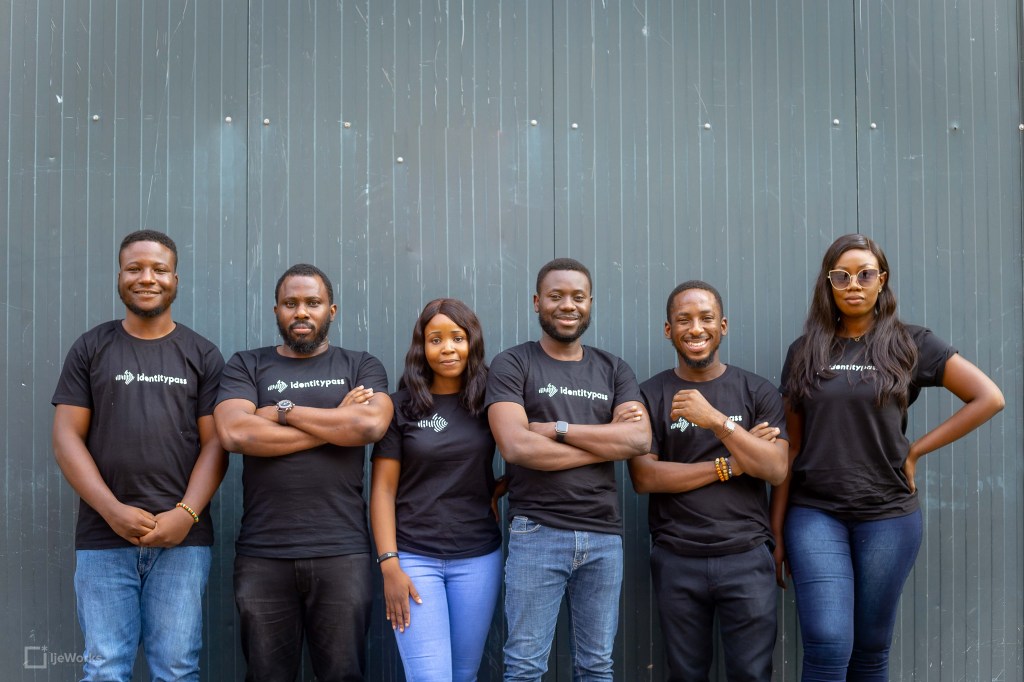Mobile penetration in Africa is growing impressively at about 46% as more people come online for the very first time. In turn, this has increased the market opportunity for startups, especially fintechs and e-commerce, which try to provide various solutions to meet the financial needs of the populace.
But to do that, these businesses must carry out certain identity verifications and KYC to combat fraud, among other things. Many platforms power these KYC processes, and one of them, Identitypass, is today announcing that it has raised $2.8 million in seed funding, months after graduating from Y Combinator. The round also comes a few months after the startup raised $360,000 in pre-seed investment last November, bringing its total funding to $3.1 million.
Reports say African businesses lose $4 billion annually to cybercrime. The global figure for this occurrence stands at $1 trillion. Thus, the need for fintechs and digital businesses in Africa to perform stringent KYC and verification checks on their customers.
However, for the folks at Lagos-based Identitypass, it wasn’t the love for reducing the high rates of fraud that led them to start the company. According to co-founder and CEO Lanre Ogungbe, the team was initially building a platform that required consumers to use biometrics (face, fingerprints or voice) and cards to make payments. But while developing the platform, they encountered issues performing verification checks. Hence, the decision to pivot.
“At the point of when we’re building it [the payments solution], there was no one in the market that had the kind of infrastructure that we wanted to use. We wanted to build a substitute for authentication. That was it,” the CEO told TechCrunch in an interview.
The team reached out to fintechs asking how they solve fraud and identity issues, seeing growing demand from that segment. The overarching feedback, Ogungbe said, was a setup involving an in-house compliance team and enacting thresholds on transactions. Customers would need to pass further investigative checks to make transactions above the threshold for the latter.
Meanwhile, some of these fintechs did not precisely have excellent KYC processes because customers only had to fill in very few data points at their onboarding stages. “We knew it would never work for us,” said Ogungbe, who founded the company with Niyi Adegboye, Ebuka Obi and Tolu Adetuyi last year. “Today, we have basic authentication using OTPs or a four-pin password, but by starting Identitypass, we wanted to introduce more authentication options into the market.”
Next, Identitypass approached various agencies and authorities countrywide to get licenses and certifications needed for authorizing checks across a full spectrum of verification points. It launched with one data point in January 2020. But now, 200 active businesses across fintech, e-commerce, education and mobility connect to 18 data points to verify their customers’ identities on the platform. These businesses are based in Nigeria, the U.K., Kenya the U.S. and India.
“The core of our business is making it possible for digital businesses in Africa to easily verify and validate that their customers are who they say they are,” the chief executive said.
“Before we came into the market, someone could pick another person’s BVN and use that to assess a loan facility,” said the founder explaining why Identitypass takes a lot of data points into cognizance. “But with technologies like ours, we can do this kind of verification to tell that the person submitting the BVN, phone number or bank details isn’t the owner.”
Identitypass has processed more than 1 million unique verifications since launch. These end points are government-approved IDs, such as national IDs, driver licenses, international passports, bank verification numbers (BVN), phone numbers, vehicle plate numbers, debit cards, security watchlists and tax history. Depending on the number of end points a business connects to, the identity and verification platform charges between 10 cents to 20 cents on every verification it executes.
Recently, the two-year-old company launched a SaaS platform in addition to its APIs. Ogungbe said this new offering — software rather than a plug-and-play solution — gives Identitypass an advantage over identical players in the market, such as fellow YC-batchmate Dojah and older startup Smile Identity.
“That makes us different from anyone in the market because today, we’re the only providers of both an API and a SaaS-based solution for verification. To add, we have more data points than most providers in the region. And the way we use data and biometrics for verification, no other player in the market uses it that way.”
This confidence in being a “market leader” is propelling the company into new territory: selling to international clients. On the call, the CEO cited an event that transpired last month when U.S.-based Mercury restricted the accounts of a few African startups due to compliance issues. He said Identitypass could prevent such events in the future if it onboards companies of Mercury’s stature to conduct checks on individuals and businesses from Africa.
Mercury restricted a number of accounts linked to African startups and didn’t exactly say why
“We will not just stop there,” Ogungbe said. “We would also work with many regulatory agencies to develop a top-notch data security framework across Africa. Lastly, we will work with multiple alliances and form more formidable and strategic partnerships across different countries in Africa.”
Powered by this seed funding led by MaC Venture Capital, Identitypass plans to expand its existing infrastructure, roll out new verticals around compliance, security and data collection, push into new African countries and make new hires to its 14-man team. Y Combinator, Soma Capital, True Capital Fund and Sherwani Capital are among its other investors.
Smile Identity raises $7M to build KYC and identity verification tools for Africa
YC W22 batch nets 24 African startups, including 18 from Nigeria





























Comment